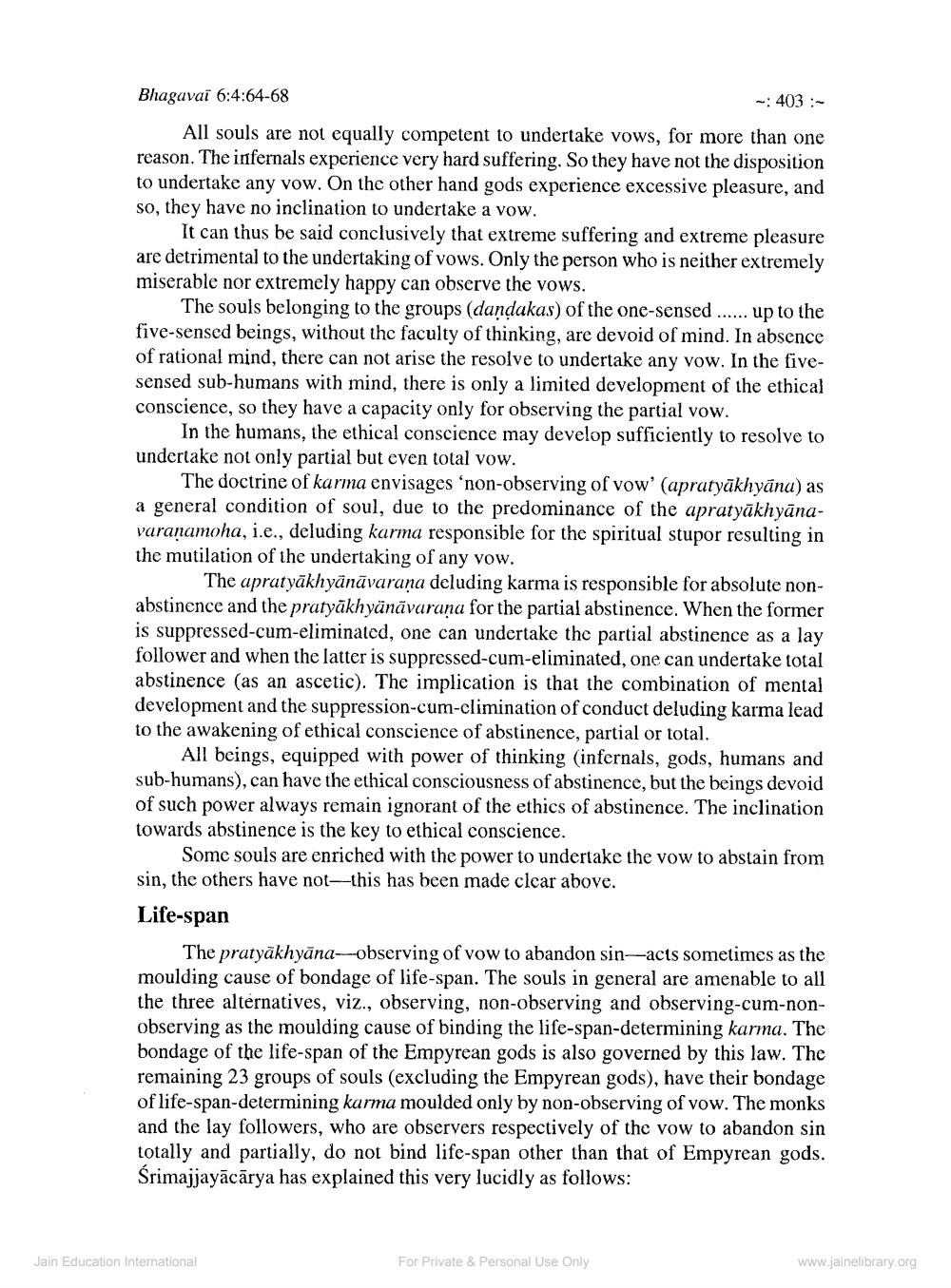________________
Bhagavai 6:4:64-68
-: 403 :All souls are not equally competent to undertake vows, for more than one reason. The infernals experience very hard suffering. So they have not the disposition to undertake any vow. On the other hand gods experience excessive pleasure, and so, they have no inclination to undertake a vow.
It can thus be said conclusively that extreme suffering and extreme pleasure are detrimental to the undertaking of vows. Only the person who is neither extremely miserable nor extremely happy can observe the vows.
The souls belonging to the groups (dandakas) of the one-sensed ...... up to the five-sensed beings, without the faculty of thinking, are devoid of mind. In absence of rational mind, there can not arise the resolve to undertake any vow. In the fivesensed sub-humans with mind, there is only a limited development of the ethical conscience, so they have a capacity only for observing the partial vow.
In the humans, the ethical conscience may develop sufficiently to resolve to undertake not only partial but even total vow.
The doctrine of karma envisages 'non-observing of vow' (apratyākhyāna) as a general condition of soul, due to the predominance of the apratyākhyānavaranamoha, i.e., deluding karma responsible for the spiritual stupor resulting in the mutilation of the undertaking of any vow.
The apratyākhyānāvarana deluding karma is responsible for absolute nonabstinence and the pratyākhyānāvarana for the partial abstinence. When the former is suppressed-cum-eliminated, one can undertake the partial abstinence as a lay follower and when the latter is suppressed-cum-eliminated, one can undertake total abstinence (as an ascetic). The implication is that the combination of mental development and the suppression-cum-climination of conduct deluding karma lead to the awakening of ethical conscience of abstinence, partial or total.
All beings, equipped with power of thinking (infernals, gods, humans and sub-humans), can have the ethical consciousness of abstinence, but the beings devoid of such power always remain ignorant of the ethics of abstinence. The inclination towards abstinence is the key to ethical conscience.
Some souls are enriched with the power to undertake the vow to abstain from sin, the others have not--this has been made clear above. Life-span
The pratyākhyāna-observing of vow to abandon sin-acts sometimes as the moulding cause of bondage of life-span. The souls in general are amenable to all the three alternatives, viz., observing, non-observing and observing-cum-nonobserving as the moulding cause of binding the life-span-determining karma. The bondage of the life-span of the Empyrean gods is also governed by this law. The remaining 23 groups of souls (excluding the Empyrean gods), have their bondage of life-span-determining karma moulded only by non-observing of vow. The monks and the lay followers, who are observers respectively of the vow to abandon sin totally and partially, do not bind life-span other than that of Empyrean gods. Srimajjayācārya has explained this very lucidly as follows:
Jain Education International
For Private & Personal Use Only
www.jainelibrary.org




